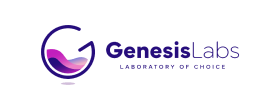Expert Billing Services for Practices of All Sizes
Trusted Medical Billing Solutions for Your Practice’s Success
Our Vision
At CommitBill, our vision is to be the leading provider of premium medical billing services. Guided by our core values—quality, customer service, relationships, teamwork, and integrity—we are dedicated to excellence in every aspect of our work. We are committed to helping healthcare providers optimize their billing processes and maximize revenue. With our growing expertise and presence in the healthcare industry, we create new opportunities to elevate your practice to greater heights.
Our Mission
In today’s complex healthcare landscape, we understand the need for an innovative partner to streamline your medical billing process and drive revenue growth. At CommitBill, we provide comprehensive, technology-enabled solutions for revenue cycle management, from optimizing clinical workflows to enhancing revenue generation. Our mission extends beyond billing—we aim to improve the overall patient experience, ensuring both your practice and your patients receive the highest level of support.
Why Choose Us?
At CommitBill, we recognize that every medical practice is unique. That’s why we provide a flexible, consultative approach to technology-driven medical billing and coding solutions, tailored to the specific needs of practices of all sizes. With extensive expertise in electronic health records (EHR), healthcare analytics, and practice management software, we enhance operational efficiency and foster a data-driven path to success. Whether your practice has 10 or over 100 providers, we can help you modernize patient experience systems, ensuring your patients feel confident and connected with their healthcare providers.
ABOUT US
Let Us Do Your Billing, So You Can Focus on Healing…
CommitBill helps clients optimize their organizational workflows, improve financial performance, adhere to compliance, and enhance the overall patient experience. We are committed to being a reliable and trusted healthcare partner by providing the highest quality in information security and compliance. CommitBill delivers best-in-class infrastructure, proprietary workflow engines, and a team of highly skilled professionals. Together, these make us an ideal partner for our clients.
We partner with our clients using the Core Values
- Trust & Transparency
- Integrity
- Collaboration
- Commitment
- Learning

Services
Patient Authorization and Validation
Once the appointment is fixed, patient comes to the doctor’s office and fills the demo forms (i.e. address with contact number, DOB, gender, SSN, employer information, policy name and number, effective date, etc.) and signs the Breach of Confidentiality.
Medical Coding and Charge Entry
The documents / reports are sent to the medical coding division to get the reports coded as CPT & ICD with the help of coding books and maintaining coding guidelines. The Coding Team assigns the Numerical Codes for CPT and the Diagnosis Code based on the Description given by the Provider
Payment Posting on Provider’s Behalf
The services that are provided to the patients are sent out to the insurance companies in the form of claims. These claims get paid by the insurance companies with the help of clearing house & EDI set up nowadays. The provider bank account is linked with the payer where payments are deposited into the provider’s bank account and ERA’s are sent directly through clearing house. We can simply reconcile the payments posted against the provider’s bank report.
Accounts Receivables Assistance
The accounts receivable follow-up team in a healthcare organization is responsible for looking after denied claims and reopening them to receive maximum reimbursement from the insurance companies.
Testimonials
DR. HEMANT DHINGRA
It is a long-established fact that a reader will be distracted by the readable content of a page when looking at its layout. The point of using Lorem Ipsum is that it has a more-or-less normal distribution of letters

DR. HEMANT DHINGRA
DR. VIKRANT SALARIA
It is a long established fact that a reader will be distracted by the readable content of a page when looking at its layout. The point of using Lorem Ipsum is that it has a more-or-less normal distribution of letters

DR. VIKRANT SALARIA
DR. DOMINICK CURATOLA
It is a long established fact that a reader will be distracted by the readable content of a page when looking at its layout. The point of

DR. DOMINICK CURATOLA
DR. GEORGE KRAUS
It is a long established fact that a reader will be distracted by the readable content of a page when looking at its layout. The point of

DR. GEORGE KRAUS
Testimonials





Medical Practices Served

Transactions Per Year

Collection Rate
WHY US
- 30% Reduced Operational Costs
- Billing & Claim Submission within 24 hours.
- 98% Clean Claims Submission Rate
- Denials & Rejection Rate Less Than 4%
- Comprehensive Audit Team
- Technology & AI Backed Process
- 100% HIPAA Compliance
- Improve Net Collection Up to 12%
- Transparent Billing and Reporting

Our Clients




We specialize in Providing Comprehensive Billing Services to small and large practices
Management Team

MR. ATUL NANDA
Director

MR. AMAN SAREEN
Director

Yul Pinto
Senior Vice President

Carlos Uresti
Senior VP Sales

Megha Sareen
CEO
Frequently Asked Questions
Revenue cycle management (RCM) refers to the process of managing and optimizing the financial aspects of a healthcare organization’s revenue cycle, starting from the initial patient encounter to the final reimbursement of services provided. It encompasses all the administrative and clinical functions related to billing, claims processing, payment collection, and revenue generation. The primary goal of revenue cycle management is to ensure timely and accurate reimbursement while maximizing revenue for the healthcare organization.
Effective revenue cycle management helps healthcare organizations streamline billing operations, minimize claim denials, optimize reimbursement, and improve overall financial performance. It requires a combination of skilled staff, efficient processes, up-to-date technology, and continuous monitoring and improvement to ensure a smooth and efficient revenue cycle.
Medical billing is the process of translating healthcare services provided by a medical facility or professional into billing claims. These claims are then submitted to insurance companies or patients to ensure that healthcare providers are reimbursed for their services.
It plays a crucial role in the healthcare revenue cycle, which encompasses the entire financial process of patient care, from appointment scheduling to final payment. Medical billing ensures that healthcare providers are properly compensated, thereby maintaining the financial sustainability of the healthcare system. By managing claims, tracking payments, and handling denials or adjustments, medical billing helps to optimize revenue flow and reduce delays or losses in payment.
Outsourcing Medical Billing and Revenue Cycle Management (RCM) offers several advantages for healthcare providers, including:
- Cost Savings: Outsourcing reduces the need for in-house staff, technology investments, and administrative costs associated with managing billing and RCM processes.
- Increased Efficiency: Professional billing companies specialize in handling claims, payments, and denials, resulting in faster processing times and fewer errors, which leads to quicker reimbursements.
- Improved Cash Flow: By streamlining the revenue cycle and reducing claim denials, outsourcing helps ensure a steady flow of revenue, improving the overall financial health of the practice.
- Focus on Patient Care: Providers can dedicate more time and resources to patient care rather than administrative tasks, enhancing the quality of service.
- Compliance and Expertise: Outsourced RCM companies stay up-to-date with ever-changing healthcare regulations and payer requirements, ensuring compliance and minimizing legal risks.
- Scalability: Outsourcing allows healthcare practices to scale their billing operations according to growth, without the need to hire additional staff or invest in new technologies.
- Access to Advanced Technology: Many RCM vendors use sophisticated software and data analytics, providing providers with valuable insights into their financial performance and areas for improvement.
Key Components of Revenue Cycle Management (RCM) and Their Impact on the Financial Health of a Medical Practice
- Patient Registration: Collecting accurate patient information at the first point of contact, including insurance details and demographic data, ensures that billing and claims processes start smoothly. Errors here can lead to denied or delayed claims, directly affecting cash flow.
- Insurance Verification: Verifying a patient’s insurance coverage and eligibility before services are provided reduces the risk of non-payment or claim rejections. This step is crucial in minimizing financial losses from uncollectible accounts.
- Charge Capture: This involves accurately recording the services provided to the patient. Proper charge capture ensures that all billable services are accounted for, helping the practice avoid revenue leakage.
- Claim Submission: Properly prepared and timely claim submissions to insurers ensure that the practice gets paid promptly. Errors or incomplete claims can result in delays or denials, negatively impacting revenue.
- Payment Posting: Once payments are received from insurers or patients, accurate posting of these payments is essential for maintaining a clear financial picture. Mistakes in this step can cause discrepancies in accounts, affecting revenue tracking.
- Denial Management: Addressing and correcting denied claims quickly helps recover lost revenue. Effective denial management reduces the impact of rejections on the practice’s cash flow.
- Patient Billing and Collections: Sending timely and accurate bills to patients and following up on overdue payments is crucial for maintaining a steady revenue stream. Inefficient patient billing can lead to lost income and patient dissatisfaction.
- Reporting and Analytics: Regular monitoring of key financial metrics, such as days in accounts receivable and denial rates, allows for continuous improvement of the RCM process. This oversight helps practices make informed decisions that can improve financial health and operational efficiency.
Together, these components form the backbone of a medical practice’s financial system, ensuring that services provided are properly billed and reimbursed. Efficient RCM processes directly impact the practice’s ability to sustain operations, maintain profitability, and invest in growth.
To ensure compliance with changing healthcare regulations and coding standards in medical billing, several strategies are crucial:
- Ongoing Staff Training: Regular training sessions for billing staff on updates in regulations, coding systems (like ICD-10, CPT, and HCPCS), and payer requirements help maintain up-to-date knowledge. This prevents coding errors and ensures accurate claim submissions.
- Leveraging Certified Professionals: Employing certified coders and billing specialists (e.g., CPCs – Certified Professional Coders) ensures that those handling claims are well-versed in current standards, reducing the likelihood of non-compliance and rejected claims.
- Utilizing Updated Software: Medical billing software with built-in regulatory updates automatically integrates changes in coding and billing practices, reducing the risk of manual errors and improving accuracy.
- Staying Informed on Policy Changes: Keeping abreast of new healthcare laws, payer policies, and regulatory guidelines (such as those from CMS, HIPAA, or the Affordable Care Act) ensures compliance. This can be achieved by subscribing to industry newsletters, joining professional associations, or attending webinars and conferences.
- Regular Audits and Reviews: Conducting internal audits and external reviews of billing practices and coding accuracy helps identify discrepancies and non-compliance issues. This proactive approach ensures that any errors or outdated practices are quickly addressed.
- Denial and Error Tracking: Tracking denied claims or errors can help identify trends in compliance issues. By addressing these patterns, practices can make adjustments and prevent future non-compliance.
- Collaboration with Compliance Officers: Working closely with compliance officers or legal consultants ensures that billing practices align with healthcare regulations, minimizing the risk of legal or financial penalties.
- Implementing a Compliance Plan: Establishing a formal compliance plan that outlines processes, responsibilities, and corrective actions for billing staff ensures that everyone follows a structured approach to maintaining regulatory adherence.
These strategies combined help medical billing teams maintain compliance in a rapidly changing healthcare environment, reducing risks of penalties, denied claims, and financial losses.
Accurate coding is essential in the medical billing process as it directly impacts reimbursement, regulatory compliance, and the financial health of healthcare providers. Here’s why accurate coding is crucial:
- Ensures Proper Reimbursement: Medical codes (ICD-10 for diagnoses, CPT and HCPCS for procedures) translate the services a provider delivers into standardized formats for insurers. Accurate coding ensures that healthcare providers are reimbursed for the exact services provided. Incorrect or incomplete coding can result in underpayment, delayed payments, or rejected claims, disrupting the cash flow of the practice.
- Reduces Claim Denials: Coding errors are a major cause of claim denials. Insurers often reject claims that contain incorrect or mismatched codes. Accurate coding minimizes the risk of such denials and the subsequent need for resubmission, which can prolong the reimbursement process and increase administrative costs.
- Compliance with Regulations: Accurate coding helps healthcare providers comply with regulatory requirements, including those from Medicare and Medicaid. Coding that doesn’t meet compliance standards can lead to audits, legal penalties, and potential loss of contracts with insurers.
- Prevents Fraud and Abuse: Coding accurately and ethically reduces the risk of fraud and abuse. Upcoding (billing for a higher level of service than provided) or downcoding (billing for a lower level of service) can lead to serious legal consequences, including fines and investigations under the False Claims Act.
- Improves Patient Care Documentation: Accurate coding ensures that patient records reflect the true nature of their medical history, diagnoses, and treatments. This is important for continuity of care, future medical decisions, and sharing information with other healthcare providers or payers.
- Enhances Data Analytics and Reporting: Medical codes are also used for tracking health outcomes, patient population trends, and resource utilization. Accurate coding allows for precise data collection, which can inform healthcare quality initiatives, public health policies, and financial planning.
In summary, accurate coding is fundamental to the success of the medical billing process. It ensures that providers receive appropriate compensation for services, maintains compliance with industry regulations, reduces the risk of audits and penalties, and supports better patient care through accurate records.
Medical billing is a component of Revenue Cycle Management. While medical billing focuses on the submission of claims and tracking payments, RCM encompasses the entire process of managing financial interactions with patients, insurance companies, and regulatory bodies—from patient registration to final reimbursement.
Common reasons for claim denials include:
– Incorrect or missing patient information
– Mismatched or incorrect medical codes (CPT, ICD-10)
– Lack of insurance coverage or authorization
– Duplicate claims
– Late submissions or missed deadlines
– Incomplete or inaccurate documentation
Medical coding translates diagnoses, treatments, and procedures into standardized codes (ICD-10, CPT, HCPCS) that insurance companies use to process claims. Accurate coding ensures that healthcare providers are reimbursed correctly for services rendered, while coding errors can lead to claim rejections or underpayment.
Healthcare providers can enhance their RCM by:
– Implementing automated billing systems
– Regularly training staff on coding and regulatory changes
– Conducting audits to identify and correct inefficiencies
– Improving patient registration and insurance verification processes
– Using denial management strategies to reduce claim rejections
– Outsourcing billing and RCM services if necessary
Front-end RCM processes involve tasks performed before or during a patient’s visit, including patient scheduling, registration, insurance verification, and charge capture. Back-end RCM includes post-visit activities such as claim submission, payment posting, denial management, and collections. Both are essential for ensuring accurate billing and efficient revenue collection.
Claim scrubbing is the process of reviewing claims for errors before submission to ensure they meet payer requirements. By identifying issues like incorrect coding or incomplete information early, claim scrubbing reduces the likelihood of denials and helps ensure timely reimbursement.
Denial management refers to the process of identifying, addressing, and preventing denied claims. Effective denial management reduces revenue loss, shortens payment delays, and helps healthcare providers recover unpaid claims by correcting errors and resubmitting rejected claims.
Patient eligibility verification ensures that the patient’s insurance coverage is active and applicable to the services they are receiving. Verifying eligibility before treatment reduces the risk of denied claims due to coverage issues, saving time and preventing revenue loss.
Patient collections involve collecting any portion of the bill not covered by insurance, such as co-pays, deductibles, and out-of-pocket expenses. Managing patient collections effectively is essential to maintaining cash flow and minimizing outstanding accounts receivable.
Regulatory changes, such as updates to HIPAA, Medicare, or ICD coding systems, can significantly affect medical billing processes. Non-compliance with new regulations can result in claim denials, delayed payments, or legal penalties, making it essential for practices to stay informed and adjust their billing procedures accordingly.